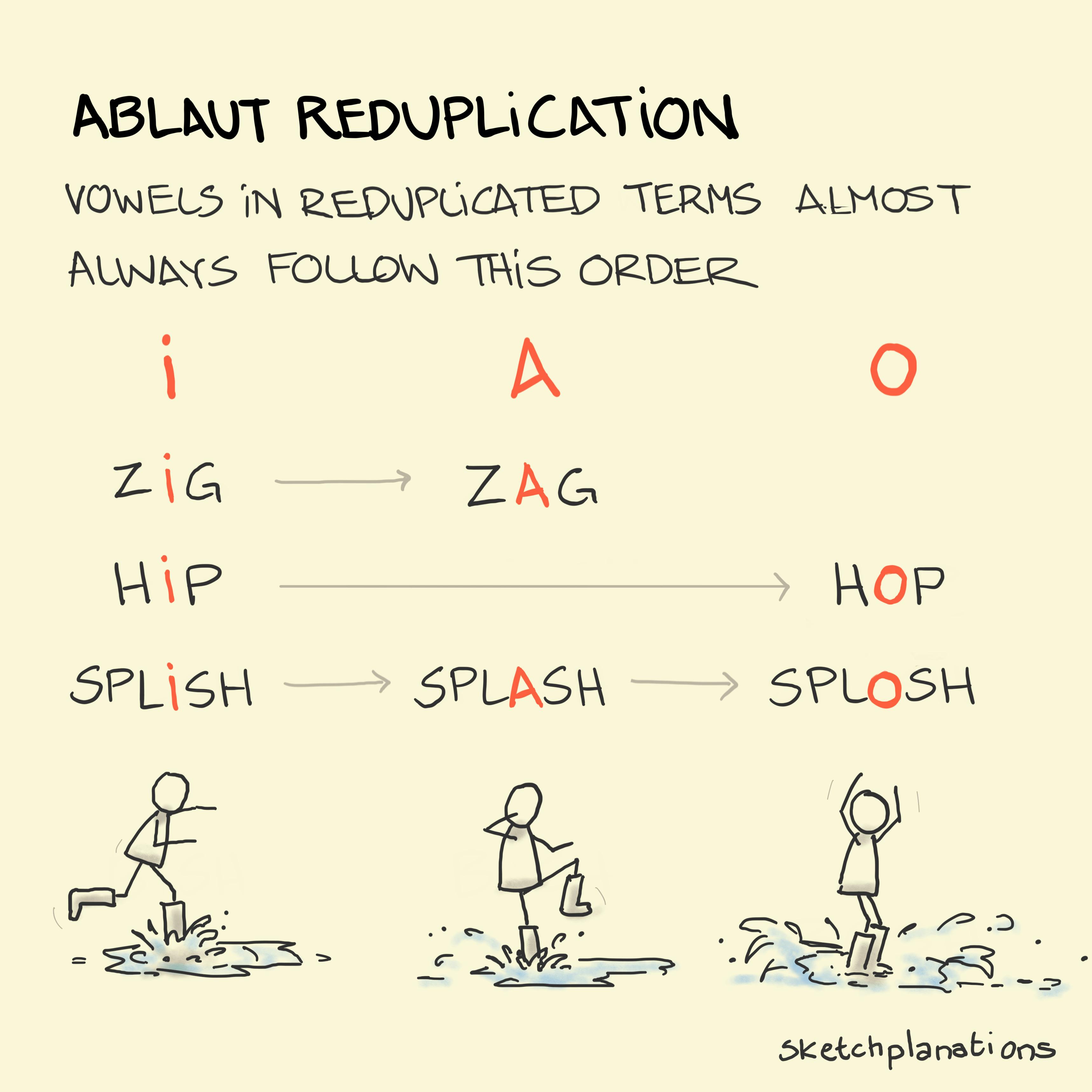Ablaut reduplication

👇 Get new sketches each week
English speakers will almost always find:
- a flip-flop is more natural than a flop-flip
- a pitter-patter of tiny feet is more natural than a patter-pitter of tiny feet
- and a tick-tock is more natural than a tock-tick
When the vowel changes in a reduplicative term — such as wishy-washy or hip hop — it's known as ablaut reduplication, and the vowels almost always follow the order I-A-O. They almost always sound weird if you say them in any other way. It's quite fun to think of examples.
I learned this neat thing from Mark Forsyth while reading about the even more surprising grammar convention about ordering adjectives in English. He explained why we say the Big Bad Wolf (thanks, ablaut reduplication) instead of the Bad Big Wolf, as our other grammar convention would dictate.
A possible explanation for ablaut reduplication is that when making the sounds, we start at the front of the mouth and move to the back, which feels slightly easier or more natural. Try it!
Related Ideas to Ablaut Reduplication
Also see:

